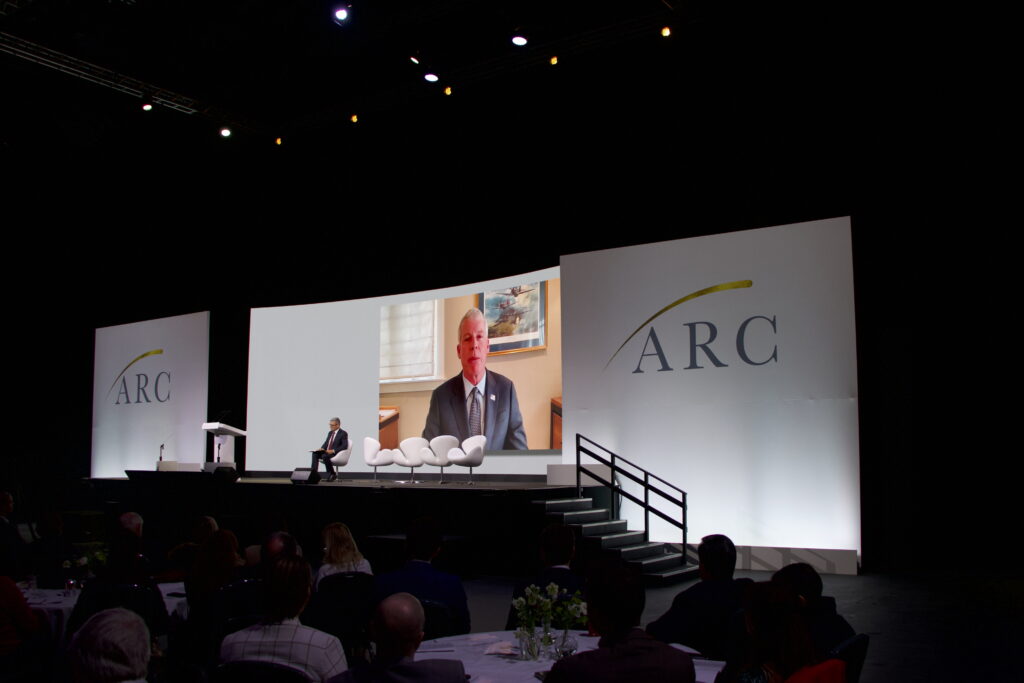Central banks are continuing to help channel trillions of dollars into fossil fuels through policy decisions and direct financing, with overall sums rising in recent years, a new report has found.
None of the twelve banks examined are on track to meet the Paris Agreement targets despite many of them recently pledging to reach net zero emissions by 2050, the US-based environmental organisation Oil Change International (OCI) said.
The report calls on governments to update the mandates of the banks to support the managed decline of fossil fuels.
The news comes ahead of a virtual conference of central bankers on Friday, where policy leaders and investors are expected to discuss the challenges posed by climate change.
‘Tinkering Around the Edges’
David Tong, Global Industry Campaign Manager at OCI and an author of the report, said in a statement:
“Central banks have access to powerful tools to confront the climate crisis, but they aren’t using them. Instead of using their power to cut off finance for fossil fuels, they are making themselves busy tinkering around the edges of the climate crisis.”
He continued: “The climate crisis is too dire and too urgent for such critical institutions to be dawdling when they could be leading the finance sector in a new, climate-safe direction.”
The report looked at 12 central banks from the UK, US, European Union, Canada, China, France, Germany, India, Italy, Japan, Russia and Switzerland.
It analysed three key functions of central banks to make its conclusions: asset management; rules and support for commercial banks for financing fossil fuels; and policy and research that could guide decision making in the future.
Banks Defend Climate Record
Some central banks have taken steps to increase their transparency and reporting of climate related risks, but the report says this has been overshadowed by a failure to reduce financial flows to the fossil fuel industries, at an estimated $3.8 trillion in the four years following the Paris Agreement.
Financial flows are also increasing to projects linked to the exploration and development of new fossil fuel resources, indicating that central banks are not using their influence as regulators of commercial banks to stem the flow of capital to polluting activities.
Danisha Kazi, Senior Economist at Positive Money, a UK-based advocacy group which collaborated on the report, said the Bank of England in particular should be doing more, in light of recent commitments.
“With its new remit to support net-zero and environmental sustainability, the Bank of England is in a particularly good position to lead the way, but it has yet to turn its words into actions and actively transition the financial system to a more sustainable footing,” she said.
When asked if the bank believed it was doing enough to meet the goals of the Paris Agreement, a Bank of England spokesperson pointed DeSmog to comments made in June by its Governor Andrew Bailey.
At the time, Bailey said the bank was “on course to meet our ambitious target of reducing emissions by 63 percent from 2016 to 2030, a level of reduction consistent with the goals of the Paris Agreement and industry best practice.”
“In addition, this year we have gone further and made a new commitment to achieve net-zero emissions from our physical operations by 2050 at the latest.”
These do not include so-called “financed” emissions from banks’ lending, however.
Bailey also said the bank would “continue to hold the firms we regulate to high standards by assessing their progress against our climate-related supervisory expectations and their resiliency to different climate scenarios in our recently launched Climate Biennial Exploratory Scenario exercise.”
The European Central Bank (ECB) directed DeSmog to comments made by its President Christine Lagard, where she said climate change was an “existential challenge for the world” and “of strategic importance for the ECB’s mandate”. In July, Lagard described the bank’s strategy as being one that accounts “explicitly for the implications of climate change and the carbon transition”.
A spokesperson for the Bank of Canada told DeSmog that better understanding of the risks posed by climate change was a “priority” for the bank.
The statement went on to outline the central bank’s engagement with both domestic institutions, to develop climate risk scenarios for the country, and with international organisations such as the Network for Greening the Financial System (NFGS) to promote sustainable finance.
In comments made before Canada’s Public Policy Forum in November 2020, the Bank of Canada’s governor Tiff Macklem explained the importance of these initiatives:
“It’s far better for the Bank to be in the room where it happens, bringing the perspective of a diversified and resource-rich economy to the table.”
Central Banks ‘Must Evolve Again’
Campaigners remain unconvinced that banks are doing enough to transition away from fossil fuels, with Extinction Rebellion activists currently protesting about the role of London’s financial sector in funding high-carbon industries.
The report urges national governments to “amend the mandates of central banks where necessary to give them the power to support the managed decline of fossil fuel production”.
It also recommends that central banks exclude all fossil fuel production and high-carbon industries from their investment portfolios, introduce regulation to eliminate commercial banks’ exposure to these industries, and undertake new research on climate-related risks.
David Tong of OCI said that central banks must adapt their role to help tackle climate change.
“Central banks’ roles have evolved over time. They reinterpreted their roles to confront the 2008-2009 financial crisis, and again in response to the COVID-19 crisis.”
“Now, they must do the same to confront the climate crisis – not just as a threat to financial stability, but as a threat to humanity.”
Subscribe to our newsletter
Stay up to date with DeSmog news and alerts







